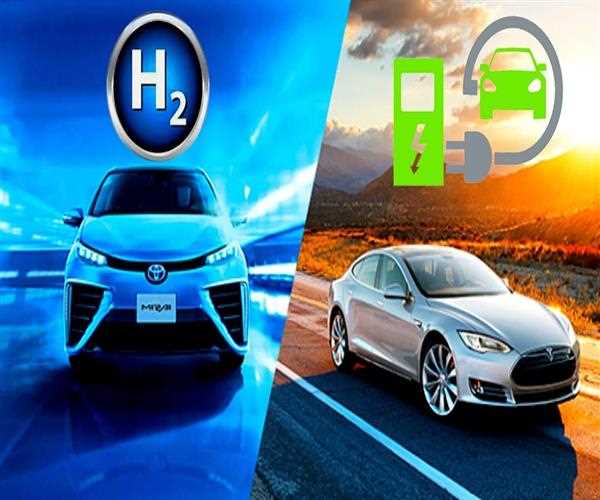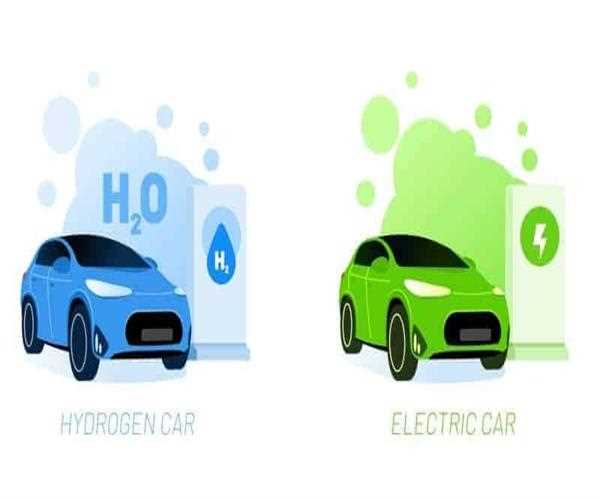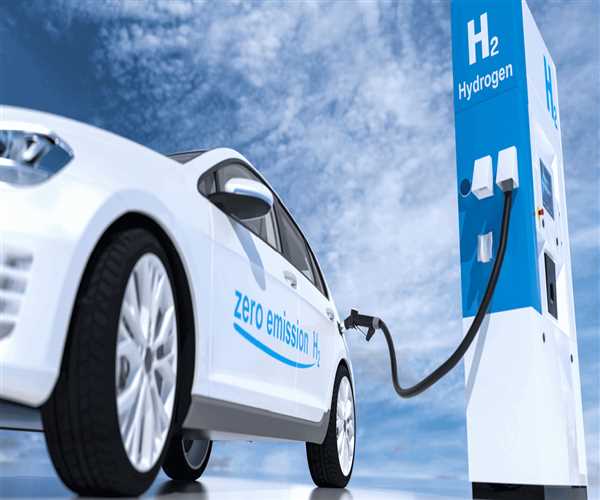
26-Dec-2024 , Updated on 12/26/2024 4:55:07 AM
Electric Vehicles Vs. Hydrogen Cars: What’s The Future Of Mobility?
Sustainable transport is essential as the world transitions to cleaner energy. The automotive industry faces a defining moment with two competing technologies: electric vehicles (EVs) and hydrogen fuel cell vehicles (HFCVs). This comprehensive analysis compares their strengths, challenges, and potential, providing clarity on what might shape the future of mobility.
1. The Rise of Electric Vehicles (EVs)
1.1 How EVs Work
Electric vehicles use batteries to store electricity, which powers an electric motor. Unlike traditional combustion engines, EVs are simpler and rely solely on electric propulsion.
Advantages:
- Zero tailpipe emissions.
- Lower running costs due to efficient energy usage.
- High energy conversion efficiency (~90% from the battery to wheels).
- Government incentives for EV adoption, including tax rebates and infrastructure funding.
1.2 Challenges Facing EVs
Despite their popularity, EVs encounter several obstacles:
- Battery Technology: Limited energy density results in shorter ranges compared to internal combustion engines.
- Charging Infrastructure: Requires widespread, fast-charging networks.
- Cost: Although EV prices are falling, high initial costs deter mass adoption.
A detailed exploration of EV technology can be found in this article on electric vehicle innovations.

2. Understanding Hydrogen Fuel Cell Vehicles (HFCVs)
2.1 How Hydrogen Cars Work
Hydrogen cars use fuel cells to combine hydrogen and oxygen, producing electricity to power the motor. Water is the only byproduct, making it environmentally friendly.
Advantages:
- Refueling time is similar to traditional cars (3–5 minutes).
- Longer ranges compared to most EVs.
- Scalable hydrogen production aligns with renewable energy sources.
2.2 Challenges for Hydrogen Cars
Hydrogen technology also faces significant challenges:
- Infrastructure: Hydrogen refueling stations are sparse and expensive to build.
- Energy Efficiency: Hydrogen production and distribution require substantial energy, often resulting in higher emissions than EVs in certain regions.
- Cost: Fuel cell production remains costly.
3. Comparative Analysis: EVs vs. Hydrogen Cars
3.1 Energy Efficiency
Driving and electric battery charging is more energy efficient than using electric power to produce hydrogen, store it, and convert it in the car.
3.2 Infrastructure
Compared to internal combustion engine vehicles, the EV is favored by existing electricity distribution networks, making charging stations easier to deploy. Hydrogen, in turn, has the problem of infrastructure, which development is in need of rather large investments.
3.3 Environmental Impact
While electric vehicles should have lower emissions than their gasoline counterparts, the sources of electricity are just as important for both electricity and hydrogen creation.
3.4 Cost and Maintenance
EVs have a lower number of components in movement as compared to ICVs, hence lower maintenance costs.
Hydrogen cars are elaborate and have increased costs in terms of maintenance costs for fuel cells and storage tanks.
For more details regarding new technologies in the field of green energy, you can read the discussions in the green energy category.
4. Key Challenges
4.1 Policy and Regulation
As for the governments, the regulations must be adjusted to meet both seemingly opposite technologies at the same time as to develop infrastructure.
4.2 Consumer Awareness
Problem solving is important to enable the consumer to appreciate the impact of his/her actions on the environment and his/her wallet.
4.3 Technological Development
Since both EVs and HFCVs face challenges like efficiency, affordability, and accessibility, there is a need for innovation.

5. The Future of Mobility
5.1 Market Trends
There are a plethora of opportunities in the market for EVs that have increased their market share of ICEVs due to pushing down battery costs and establishing charging stations.
Hydrogen cars are still small but are seen for high-end uses and long distances.
5.2 Interaction Between Technologies
In the future, certain parts of the auto industry could be occupied by EVs and hydrogen cars. One could imagine hydrogen technology taking over the heavy industries market, while EVs are perfectly suitable for the urban-centered transport markets.
5.3 Role of Renewable Energy
Both technologies depend on the inclusion of renewable materials in the production of electricity for EVs and hydrogen production, respectively.
To learn more about how renewable energy is being used in transport, visit the articles on clean energy.
6. Conclusion
The debate between electric vehicles and hydrogen cars underscores a shared goal: sustainable mobility. Although the current situation is that EVs are more popular and efficient, hydrogen cars work more effectively in some cases. A combined approach involving both technologies may be what the environment and the economy will benefit from the most.
Adoption of the proper technology depends on infrastructure, type of energy sources, and policy framework advances.

Student
Being a professional college student, I am Shivani Singh, student of JUET to improve my competencies . A strong interest of me is content writing , for which I participate in classes as well as other activities outside the classroom. I have been able to engage in several tasks, essays, assignments and cases that have helped me in honing my analytical and reasoning skills. From clubs, organizations or teams, I have improved my ability to work in teams, exhibit leadership.
Join Our Newsletter
Subscribe to our newsletter to receive emails about new views posts, releases and updates.
Copyright 2010 - 2026 MindStick Software Pvt. Ltd. All Rights Reserved Privacy Policy | Terms & Conditions | Cookie Policy